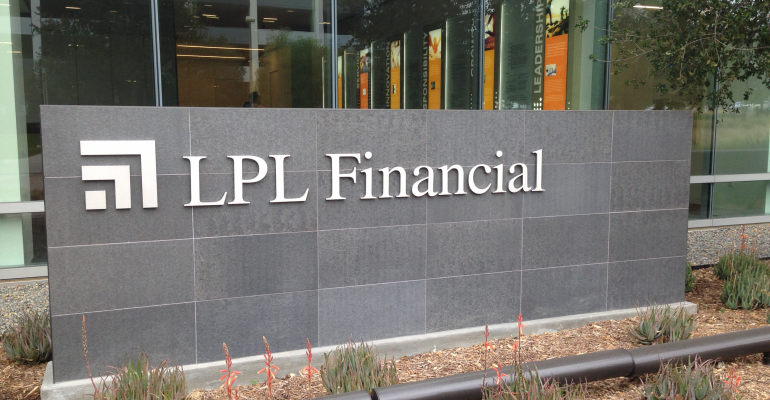LPL Financial has been recruiting advisors out of the wirehouses and other employee-model firms for years, but the broker/dealer is now dressing up its offerings to make the firm more attractive to these types of advisors.
The firm will introduce a new model for advisors coming out of wirehouse and regional firms aimed at taking some of the more entrepreneurial tasks involved in starting and running a practice off their shoulders.
There’s a large set of advisors who find the transition process of setting up their own business burdensome, and the firm sees the need to address those pain points. For instance, many advisors find it daunting to source office space, write a lease, build out the space, select the right equipment and set up the network. Finding and hiring staff is another burden.
Under the new model, LPL will help with these tasks.
In addition to lowering the barriers to transition, LPL also saw that these advisors required a higher level of ongoing support. So the firm plans to provide more help to them.
"With wirehouse advisors disenchanted with the stogy corporate culture of the wirehouses and forgivable note money for switching to another wirehouse far less than it use to be, the rationales for staying or switching to another wirehouse are less than ever," said Jonathan Henschen, president of the recruiting firm Henschen & Associates. "Couple that with the opportunity to go independent with a firm with name branding but not have the entrepreneurial burdens of setting up and running your own office and the narrative for making a move to independence gets even more appealing."
The new model is aimed at larger wirehouse groups with $200 million plus in client assets, according to a source familiar with the new program. The pricing for the model has not been finalized. These advisors will likely have higher payouts than they would under an employee model but lower than a typical LPL rep who comes onboard.
Several years ago, advisors thought of this pain and steep learning curve as the price they had to pay when going independent, said Brian Hamburger, president and CEO of MarketCounsel and founder and managing director of the Hamburger Law Firm.
“When you look at the demographics now, it’s quite different,” Hamburger said. “Most of the folks that are heading over to independence are doing so because of the features that independence brings with it—the level of autonomy, the ability to run your business as you deem appropriate, the ability to utilize the value of the business to incent the remainder of your team, the ability to have open architecture and select not only the investment products but also the technology you’re going to use.
“I think LPL’s responding to that market demand and saying, ‘Hey, these are folks who are making their way over to independence because they have to in order to run the type of business they envision, but they don’t have an appetite for these entrepreneurial issues that advisors did a decade or two decades ago.”
The new initiative follows other moves the company has made to attract breakaway advisors and provide a sound offering for fee-only RIAs, the model that many seek.
The firm’s head of business development, Richard Steinmeier, who joined last August, hails from UBS Wealth Management USA, where he was managing director and chief digital officer.
And at the end of last year, LPL snagged Marc Cohen, who for 12 years transitioned breakaways out of the wirehouses as chief operating officer of MarketCounsel.
In January, CEO Dan Arnold announced that the firm was working on a dedicated offering for fee-only RIAs.
“I don’t think the independent broker/dealer can continue to exist in the manner it has,” Hamburger said. “It has to figure out a way to distinguish itself because they’re getting lost in the shuffle. They’re getting lost between the wirehouses and real independence.
“This seems like LPL trying to be innovative and find their place ahead of the pack among independent broker/dealers.”




